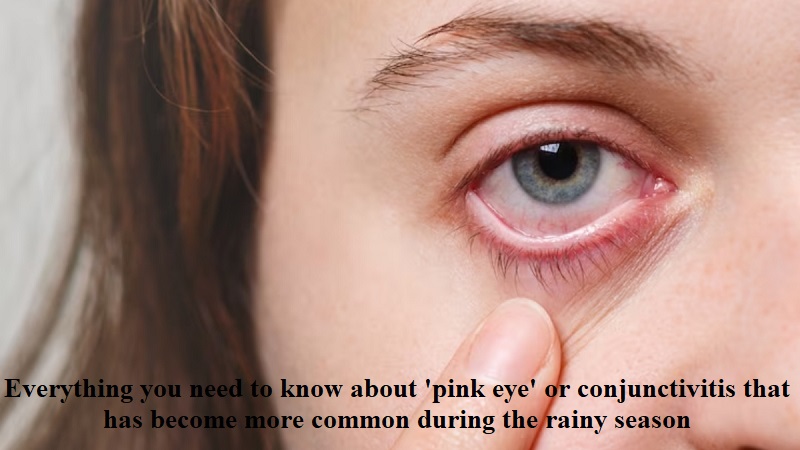
Conjunctivitis, commonly known as “pink eye,” becomes more prevalent during the rainy season due to the damp and humid weather, which provides an ideal environment for the growth of bacteria and viruses responsible for this common eye infection. Rainwater collected in various places also serves as a breeding ground for these pathogens. Additionally, people are more likely to come into contact with contaminated water or surfaces during this time, further increasing the risk of conjunctivitis. Doctors in Delhi and surrounding areas have reported a significant increase in the number of infections this year.
Dr. Charu Tyagi, an eye specialist and former senior consultant at Max hospitals, mentioned a drastic surge in cases, at least three to four times higher than previous years. Symptoms of conjunctivitis include redness, itching, excessive tearing, and thick discharge from the eyes, as the clear tissue covering the white part of the eye and the inside of the eyelids becomes inflamed.
Conjunctivitis can affect one or both eyes and has three main forms: bacterial, viral, and allergic. Viral conjunctivitis is the most common and highly contagious type, often spreading in crowded settings like classrooms. Bacterial conjunctivitis causes sticky eye pus, while allergic conjunctivitis is triggered by allergies and is not spreadable.
Although the body can fight the virus on its own, maintaining good hygiene, avoiding touching the eyes with unclean hands, and seeking medical assistance upon noticing symptoms are essential to reduce the spread of conjunctivitis. Patients should avoid sharing personal belongings like towels or eye makeup to prevent transmission.
Dr. Tyagi advises seeking advice from an eye specialist for proper diagnosis and treatment, as different strains of the infection may require different approaches. Over-the-counter medications should be avoided, as they may worsen the situation.
Dr. JS Titiyal, chief of the RP Centre for Ophthalmic Sciences at AIIMS, reports around 100 cases of conjunctivitis per day in the national capital. Conjunctivitis cases typically increase seasonally, coinciding with the flu season.

Post Your Comments